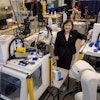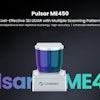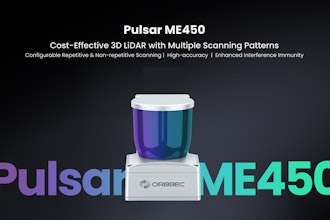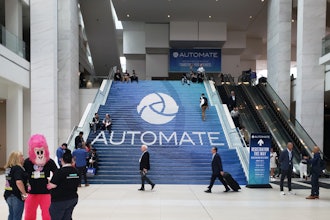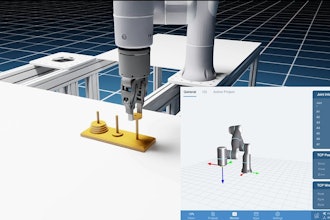Your salesforce is experiencing some growing—and shrinking—pains. By 2020, millennials will represent the largest generation in the workplace at 35 percent. Meanwhile, the share of baby boomers, the generation that comprises the majority of manufacturing sellers, will drop to 9 percent.
Here’s the good news: There couldn’t be a better time to attract millennial sellers. Eighty-five percent of current salespeople say they would recommend a career in sales to a young person. Meanwhile, the global salesforce is forecasted to remain relatively stable through 2020, with a 46 percent compound annual growth rate—a positive sign for millennials, who are likely to prioritize job security over other considerations.
So what do manufacturing sales teams need to keep in mind to attract, hire and retain potential millennial sellers?
Tell your company story the right way
While compensation is the No. 1 factor that affects millennials’ assessment of a potential job, they also want to work at a place that recognizes and fosters their passions. Manufacturing sales careers offer the opportunity to develop expertise in cutting-edge technology. Play up the exciting features behind your company’s robotics program or the new software powering your automated sensors.
Likewise, millennials are attracted to a forward-thinking company culture that makes them feel like a person rather than a faceless asset. They prefer companies with a strong work-life balance, flexible and remote work environments and transparent parental leave and vacation policies.
Be clear about the personality and skill set you’re seeking
As with any role, your sales and human resources departments should develop a solid definition of the characteristics, skills and personality traits that will make a millennial applicant a good fit. Talent and skills assessments during the interview process can help ensure a cultural fit and determine where their strengths can best serve your company—and how you can develop their skills once they are on board.
Don’t discount a millennial candidate just because he or she doesn’t have a specific background in selling. As the traditional definition of sales swings more toward a proof-based practice, graduates with a science, technology, engineering and mathematics (STEM) education are moving into sales. In 2017, sales were the most popular non-computer-related job for STEM graduates.
Develop training programs that go beyond the technical
Millennials grew up as a digital-first generation and often possess intuitive knowledge of the technical aspects of manufacturing sales. But with the increase in the number of stakeholders in the manufacturing sales process, it’s critical to train and coach them on connecting with customers—especially for STEM graduates who carry a reason-based approach. Young sellers need to identify and speak to the value of solutions based on valid business needs.
Something else STEM-grad millennial sellers will appreciate: There’s evidence to back up the success of this training. Companies that blend sales education with technical and product training achieve greater success; organizations with reps that exceed client expectations in providing insights and perspectives have win rates 12.4 percent higher than those who simply meet expectations.
Invest in millennial sellers to cement a long-term relationship
When millennials see a pathway to growth that sets them up for success at your manufacturing company, they’ll feel connected to your mission and future. Be specific about how they can accelerate their careers through benchmark goals and provide them with the appropriate resources. Millennials truly want to become great in their careers; 87 percent say professional development represents an important part of their jobs.
Tech-savvy millennials have the potential to contribute to your manufacturing sales team from day one. Ask about their career priorities, such as participating in the launch of new technology, and give them opportunities to showcase their ability to help and lead others in these initiatives from the beginning. Millennials who believe their companies exhibit a high-trust culture are 22 times more likely to want to work there for a long time.
With a fresh, energized perspective, millennial sellers have the potential to make a difference in your manufacturing sales team. Equip them with the job benefits, technology, data, and training to succeed, and they’ll reward you in spades.
Pamela Hammers is an independent sales consultant at the Miller Heiman Group.


